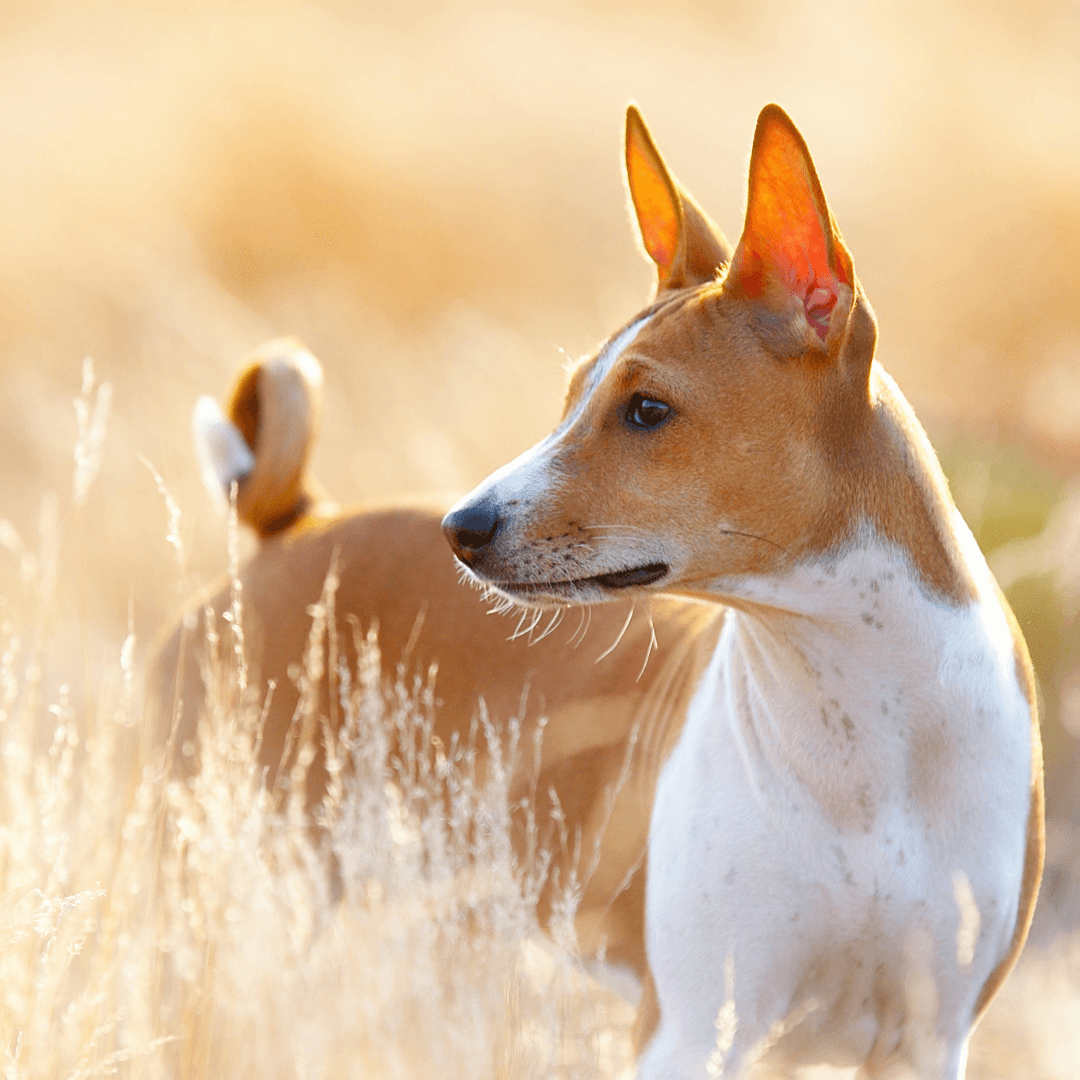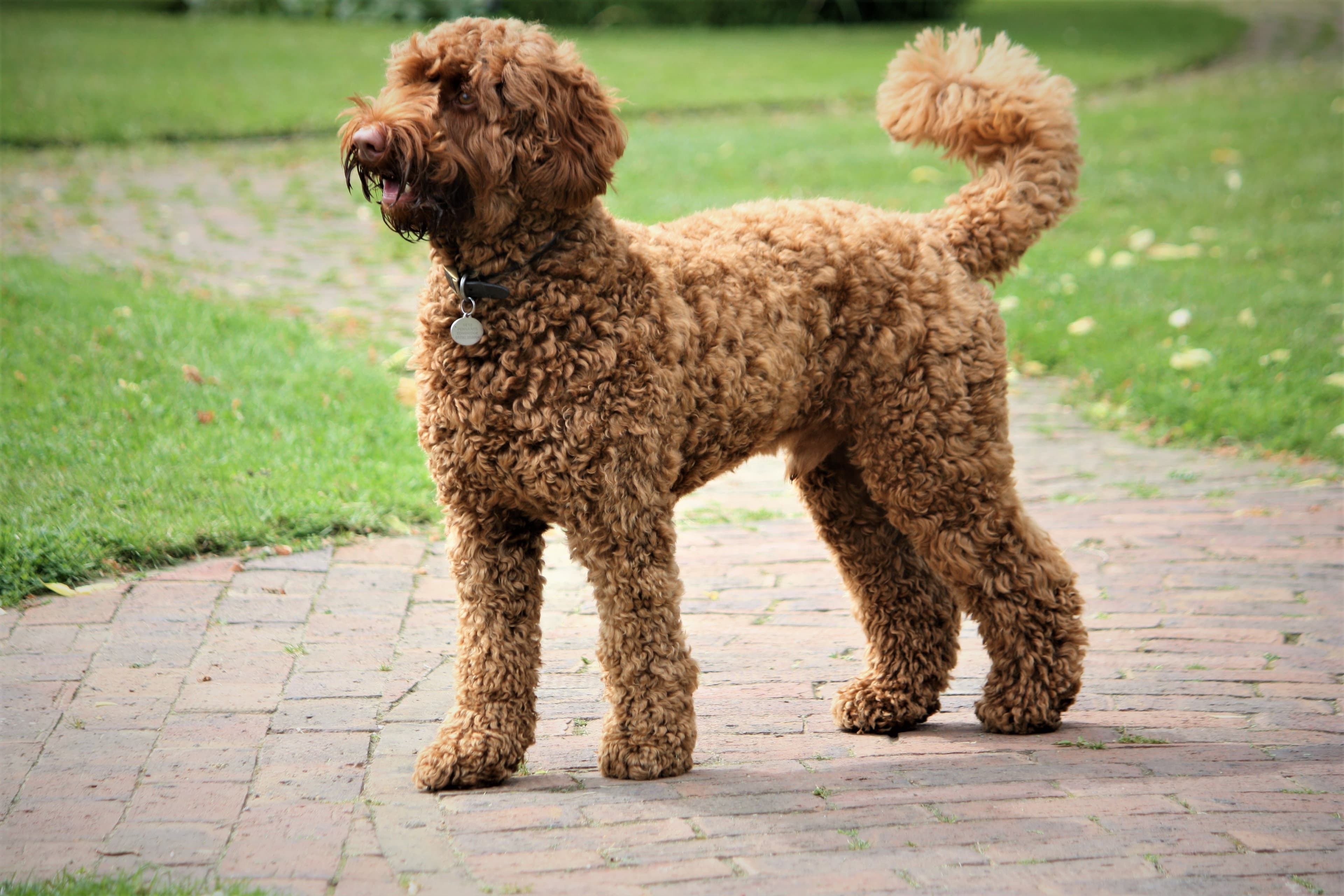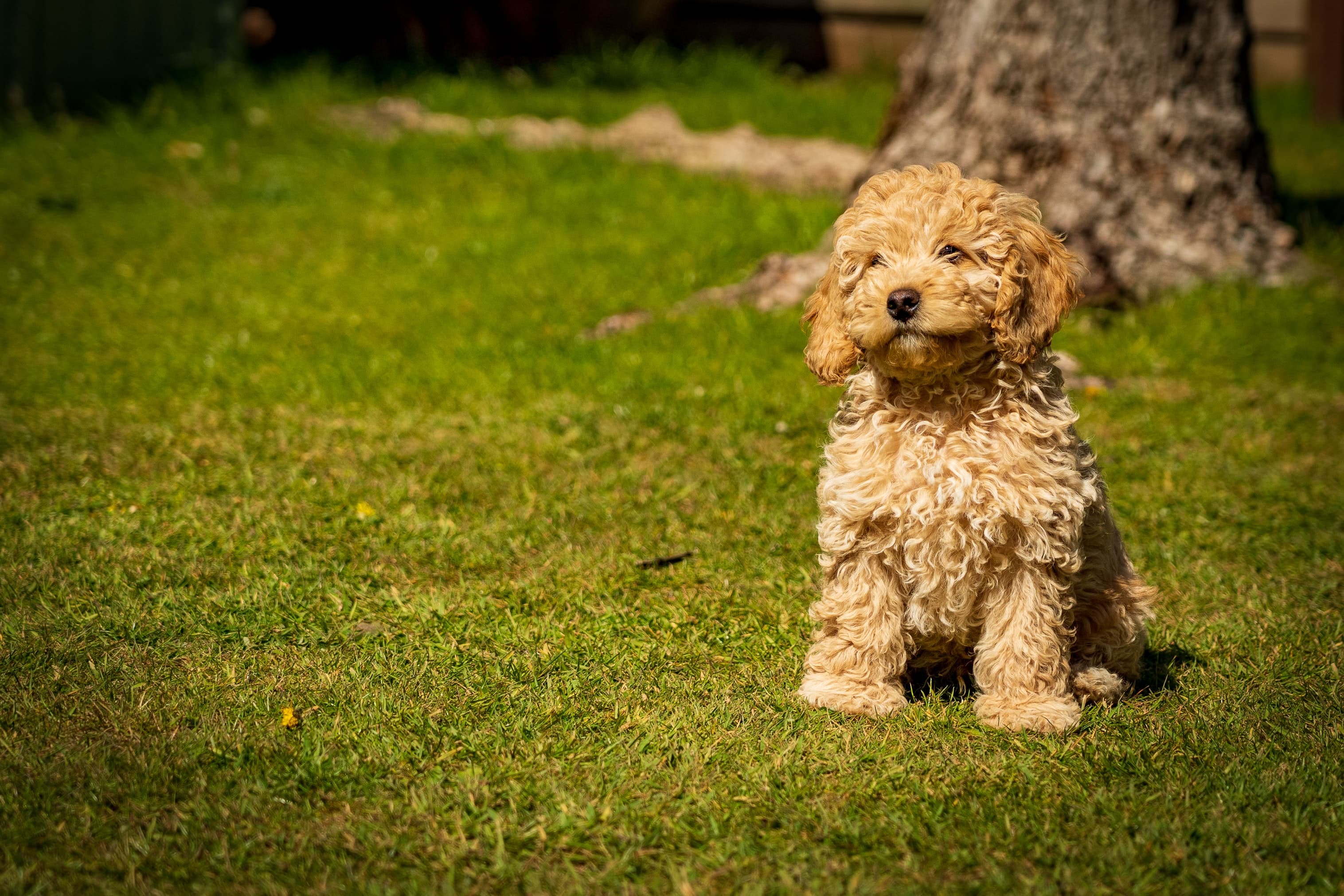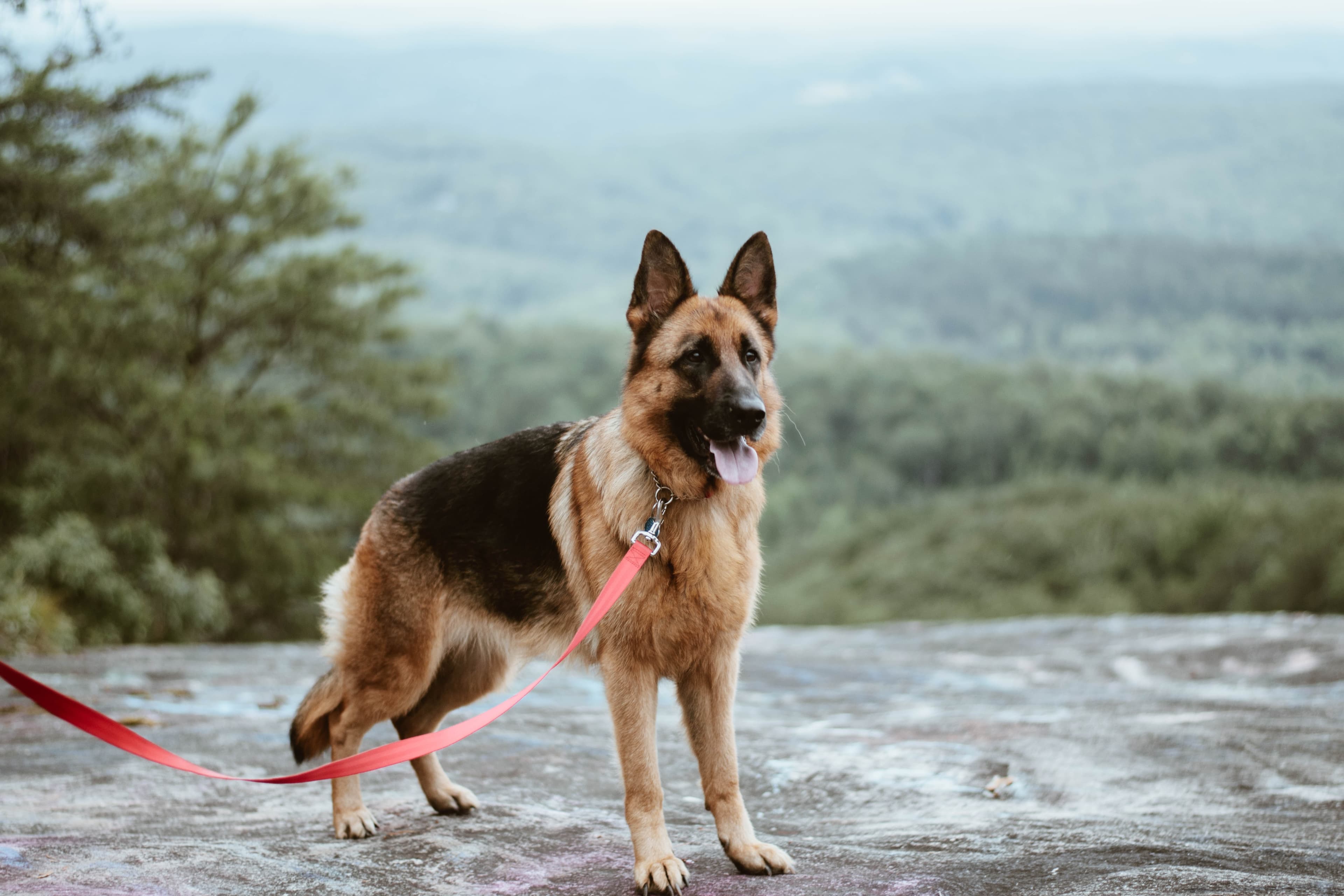Basenji Breed Guide
The world of dog breeds is as diverse as it is fascinating. Standing out from the pack is the Basenji, known for its unique characteristics. Often called the “barkless African dog,” this small to medium-sized breed has captivated dog lovers globally. In this guide, we’ll delve into the Basenji's remarkable traits, explore its history, temperament, care needs, and much more.
History and origins
The Basenji's roots can be traced back to ancient Africa, particularly the Congo and Sudan regions. Local tribes bred these dogs for hunting. What sets them apart is their lack of typical dog barking. Instead, they produce a unique yodel-like sound, often called a “barroo,” which is why they're known as “barkless dogs.”
External characteristics
Basenjis are known for their graceful, athletic appearance. They have short, smooth coats in various colours, including reddish-brown, black, and tricolour. Their almond-shaped eyes are dark and expressive, while their pricked ears contribute to their alert and inquisitive nature.
Temperament
Basenjis are characterised by their independence and self-confidence. Their high intelligence makes them demanding yet fascinating companions. However, it’s important to stress that these dogs aren't suitable for everyone and require experienced owners. The Basenji has a very stubborn streak and isn't easily managed. Building a harmonious relationship with this fascinating dog takes understanding, patience, and experience.
It’s important to note that Basenjis have very specific behavioural and exercise needs. Their independence and hunting nature mean they don't easily engage in seemingly pointless activities, whether under duress or with treats. Basenjis remain hunters and self-sufficient dogs who don't necessarily need human direction. They won't look up to people unconditionally, but rather show affection and attachment based on their own value system. Therefore, it's important to respect their individuality and build a relationship based on trust and understanding.
Training needs
To train a Basenji effectively, it’s important to consider their active nature. This breed requires regular exercise to stay physically and mentally healthy and happy. Outdoor activities like running, hiking, and fetch are especially popular and help satisfy their natural instincts.
Training a Basenji can be both rewarding and challenging. Their independence might mean they don't always obey commands readily. It's crucial to remember that the Basenji is a complex dog and not suitable for everyone. Their behaviour and exercise needs are extremely specific.
A consistent training method based on positive reinforcement is essential from a young age. Early socialisation is also very important to ensure Basenjis get along well with other dogs and people.
Grooming a Basenji
One of the benefits of owning a Basenji is their easy-care coat, and they are classified as a hypoallergenic dog breed. They shed minimally, are known for their cleanliness, and often groom themselves like cats. Regular brushing and occasional baths are usually enough to keep them looking good.
Health
Basenjis are generally a healthy breed, but they are prone to some inherited conditions, including Fanconi syndrome and progressive retinal atrophy (PRA).
Regular veterinary check-ups and responsible breeding practices are essential for maintaining their health.
Unique properties
Basenjis are a unique breed, standing out for their distinctive characteristics and behaviour.“Bellless” yodeling:A fascinating trait of Basenjis is their “barkless” yodelling. Unlike many other dogs, Basenjis tend to make a yodelling sound, which is very different from traditional barking. This adds a unique touch to their communication.
Cat-Like Grooming:Basenjis exhibit cat-like grooming behaviours. They tend to groom themselves extensively and display a level of cleanliness not found in all dogs. This independent self-care underlines their independent nature.Notable Climbing Skills:Another notable feature of Basenjis is their climbing ability. These dogs are known to ascend to elevated vantage points to survey their surroundings. This behaviour highlights their hunting nature and preference for a strategic position.
Independence and willfulness:Basenjis are extremely independent dogs and not suited for every owner. Their strong will makes them fascinating yet demanding companions. They tend to make their own decisions and often show little interest in obedience-based training.
It’s important to stress that the Basenji's unique traits can present a particular challenge for owners. Their independence and stubborn character require sensitive handling and consistent, yet respectful, upbringing. However, an experienced owner who appreciates the Basenji's individuality and quirks can build a loyal and fascinating relationship with this unique dog.
A dog breed for you?
The Basenji is a fascinating dog breed, but not suitable for everyone. The breed's independence and strong hunting instincts make them challenging. Experience in dog training is required, as Basenjis are intelligent but also stubborn. If you don't have the time, patience, or experience, it’s advisable to choose a less demanding breed.






